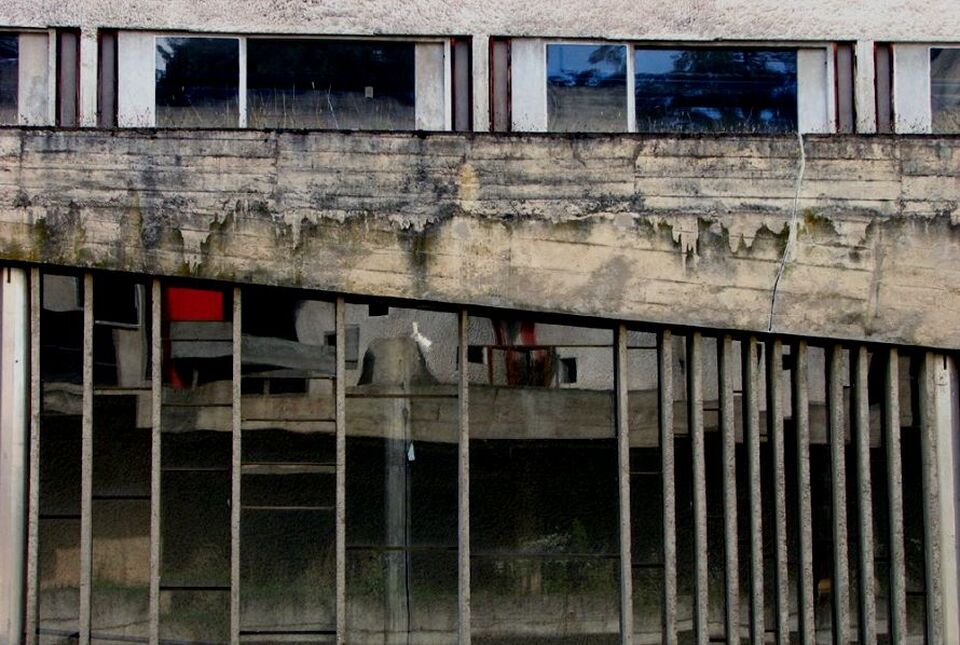PROGRAM:
Prelude: (MÁRTA KURTÁG in MEMORIAM)
György KURTÁG - Transcriptions of works by MACHAUT, LASSO, FRESCOBALDI, SCHÜTZ, PURCELL and BACH
Bernard PARMEGIANI - Selections from DE NATURA SONORUM (1975)
Iannis XENAKIS - PLÉÏADES (1978)
Vicki Ray and Gloria Cheng, piano
Michael Pisaro, sound diffusion
ECHOI ENSEMBLE
Eric Derr, Dustin Donahue, Sean Dowgray, Katie Eikam, Tim Feeney, Kevin Good,
Kalle Hakosalo, Yuri Inoo, Michael Jones, Ryan Nestor, and Derek Tywoniuk, percussion
Jonathan Hepfer, director
Prelude: (MÁRTA KURTÁG in MEMORIAM)
György KURTÁG - Transcriptions of works by MACHAUT, LASSO, FRESCOBALDI, SCHÜTZ, PURCELL and BACH
Bernard PARMEGIANI - Selections from DE NATURA SONORUM (1975)
Iannis XENAKIS - PLÉÏADES (1978)
Vicki Ray and Gloria Cheng, piano
Michael Pisaro, sound diffusion
ECHOI ENSEMBLE
Eric Derr, Dustin Donahue, Sean Dowgray, Katie Eikam, Tim Feeney, Kevin Good,
Kalle Hakosalo, Yuri Inoo, Michael Jones, Ryan Nestor, and Derek Tywoniuk, percussion
Jonathan Hepfer, director
Two major developments in the history of classical music that defined the twentieth century were the parallel rises of the use of percussion and electronic sound sources. It is perhaps no wonder that so many pioneers in the field of percussion music were also pioneers in the field of electronic music (Edgard Varèse, John Cage, Karlheinz Stockhausen and Steve Reich, for example).
For the opening program of Monday Evening Concerts's season at Zipper Concert Hall, we offer two of the most significant works of those traditions, Iannis Xenakis's Pléïades for percussion sextet and Bernard Parmegiani's De natura sonorum for electroacoustic sounds. In these works, we observe two masters perfecting their compositional languages in different but complementary mediums.
Written in Paris in 1975 (De natura sonorum) and 1978 (Pléïades), this program interleaves Xenakis's investigations into timbre, non-octave scales, microtonality, statistics, flocking, and rhythm with Parmegiani's probes into harmonics, textures, transformations and psychoacoustics. The common thread? The visceral nature of sound.
For the opening program of Monday Evening Concerts's season at Zipper Concert Hall, we offer two of the most significant works of those traditions, Iannis Xenakis's Pléïades for percussion sextet and Bernard Parmegiani's De natura sonorum for electroacoustic sounds. In these works, we observe two masters perfecting their compositional languages in different but complementary mediums.
Written in Paris in 1975 (De natura sonorum) and 1978 (Pléïades), this program interleaves Xenakis's investigations into timbre, non-octave scales, microtonality, statistics, flocking, and rhythm with Parmegiani's probes into harmonics, textures, transformations and psychoacoustics. The common thread? The visceral nature of sound.

